
Russia called an emergency meeting of the UN Security Council today to condemn last nights airstrikes by the US, Britain, and France on Syria’s chemical weapons infrastructure. This how it went:
After a heated two-hour debate, the United Nations Security Council rejected a Russian resolution on Saturday that would have condemned airstrikes carried out hours earlier by the United States, Britain and France against Syria.
Russia, China and Bolivia voted for the resolution, but eight members voted against and four abstained. Even a majority vote would have been largely symbolic, as the three Western powers that carried out the attack hold veto power and would certainly have blocked it.
…
Russia’s ambassador, Vasily A. Nebenzia, said the three Western powers had carried out “aggression against a sovereign state, which is on the front lines of the fight against terrorism,” without proof that chemical weapons had been used, much less by forces overseen by President Bashar al-Assad of Syria, Russia’s ally.“The United States and its allies continue to demonstrate blatant disregard for international law,” he said.
Mr. Nebenzia heaped scorn on a claim made Friday by the United States defense secretary, Jim Mattis, that the United States Constitution gave the president the right to take military action to defend “vital national interests.”
“It’s time for Washington to learn that the international code of behavior regarding the use of force is regulated by the United Nations Charter,” Mr. Nebenzia said.
For the first time in a few decades, the US has a UN ambassador who is more concerned with furthering US interests and defending the US than sucking up to every Third World sh**hole in hopes that that the can be coaxed into singing “For He’s a Jolly Good Fellow” as they cash our checks. As she did earlier in the week, Nikki Haley brought smoke on Russia’s lies, half-lies, and delusions:
Thank you, Mr. President, and thank you, Mr. Secretary-General, for your briefing today. This is our fifth Security Council meeting in the past week to address the situation in Syria. A week has gone by in which we have talked. We’ve talked about the victims in Douma. We’ve talked about the Assad regime and its patrons, Russia and Iran. We’ve spent a week talking about the unique horror of chemical weapons. The time for talk ended last night.
We’re here today because three permanent members of the United Nations Security Council acted. The United Kingdom, France, and the United States acted – not as revenge, not as punishment, not as a symbolic show of force. We acted to deter the future use of chemical weapons by holding the Syrian regime responsible for its atrocities against humanity.
We can all see that a Russian disinformation campaign is in full force this morning. But Russia’s desperate attempts at deflection cannot change the facts. A large body of information indicates that the Syrian regime used chemical weapons in Douma on April 7. There is clear information demonstrating Assad’s culpability.
Nikki Haley: "We can all see that a Russian disinformation campaign is in full force this morning. But Russia’s desperate attempts at deflection cannot change the facts… The pictures of dead children were not fake news." (via CBS) pic.twitter.com/j2m3ajmWjF
— Kyle Griffin (@kylegriffin1) April 14, 2018
The pictures of dead children were not fake news. They were the result of the Syrian regime’s barbaric inhumanity. And they were the result of the regime and Russia’s failure to live up to their international commitments to remove all chemical weapons from Syria. The United States, France, and the United Kingdom acted after careful evaluation of these facts.
The targets we selected were at the heart of the Syrian regime’s illegal chemical weapons program. The strikes were carefully planned to minimize civilian casualties. The responses were justified, legitimate, and proportionate. The United States and its allies did everything we could to use the tools of diplomacy to get rid of Assad’s arsenal of chemical weapons.
We did not give diplomacy just one chance. We gave diplomacy chance after chance. Six times: That’s how many times Russia vetoed Security Council resolutions to address chemical weapons in Syria. Our efforts go back even further. In 2013, the Security Council passed a resolution that required the Assad regime to destroy its stockpile of chemical weapons.
Syria committed to abide by the Chemical Weapons Convention, meaning it could no longer have chemical weapons on its soil.
President Putin said Russia would guarantee that Syria complied. We hoped that this diplomacy would succeed in putting an end to the horror of chemical attacks in Syria. But as we see from the past year, that did not happen.
While Russia was busy protecting the regime, Assad took notice. The regime knew it could act with impunity, and it did.
In November, Russia used its veto to kill the Joint Investigative Mechanism, the main tool we had to figure out who used chemical weapons in Syria. Just as Russia was using its veto, the Assad regime used sarin, leading to dozens of injuries and deaths.
Russia’s veto was the green light for the Assad regime to use these most barbaric weapons against the Syrian people, in complete violation of international law. The United States and our allies were not going to let that stand. Chemical weapons are a threat to us all. They are a unique threat, a type of weapon so evil that the international community agreed they must be banned.
"Chemical weapons are a threat to us all" – US ambassador to UN @nikkihaley on #SyriaStrikes https://t.co/TYYdZbq2YK pic.twitter.com/1iPWOYh9im
— BBC Breaking News (@BBCBreaking) April 14, 2018
We cannot stand by and let Russia trash every international norm that we stand for, and allow the use of chemical weapons to go unanswered. And just as the Syrian regime’s use of chemical weapons last weekend was not an isolated incident, our response is part of a new course charted last year to deter future use of chemical weapons.
Our Syrian strategy has not changed. However, the Syrian regime has forced us to take action based on their repeated use of chemical weapons. Since the April 2017 chemical attack at Khan Sheikhoun, the United States has imposed hundreds of sanctions on individuals and entities involved in chemical weapons use in Syria and North Korea. We have designated entities in Asia, the Middle East, and Africa that have facilitated chemical weapons proliferation. We have revoked the visas of Russian intelligence officers in response to the chemical attack in Salisbury. We will continue to seek out and call out anyone who uses – and anyone who aids in the use – of chemical weapons.
With yesterday’s military action, our message was crystal clear. The United States of America will not allow the Assad regime to continue to use chemical weapons. Last night, we obliterated the major research facility that it used to assemble weapons of mass murder. I spoke to the President this morning and he said if the Syrian regime uses this poison gas again, the United States is locked and loaded. When our President draws a red line, our President enforces the red line.
“The United States is locked and loaded. When our president draws a red line, our president enforces the red line.” @nikkihaley addresses the UN Security Council during an emergency meeting requested by Russia https://t.co/9I10PBavss https://t.co/grjTWptzF0 pic.twitter.com/besFrjd7vd
— CBS Evening News (@CBSEveningNews) April 14, 2018
The United States is deeply grateful to the United Kingdom and France for its part in the coalition to defend the prohibition of chemical weapons. We worked in lock step, we were in complete agreement. Last night, our great friends and indispensable allies shouldered a burden that benefits all of us. The civilized world owes them its thanks. In the weeks and months to come, the Security Council should take time to reflect on its role in defending the international rule of law.
The Security Council has failed in its duty to hold those who use chemical weapons to account. That failure is largely due to Russian obstruction. We call on Russia to take a hard look at the company it keeps, and live up to its responsibilities as a Permanent Member of the Council and defend the actual principles the United Nations was meant to promote.
Last night, we successfully hit the heart of Syria’s chemical weapons enterprise, and because of these actions, we are confident that we have crippled Syria’s chemical weapons program.
We are prepared to sustain this pressure, if the Syrian regime is foolish enough to test our will.


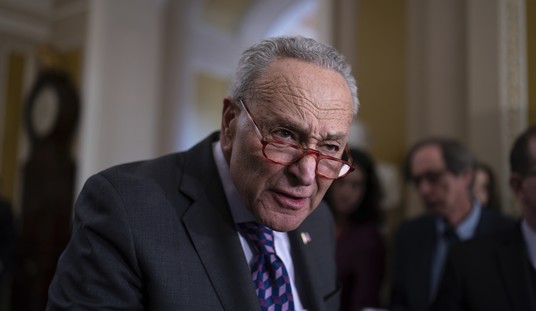

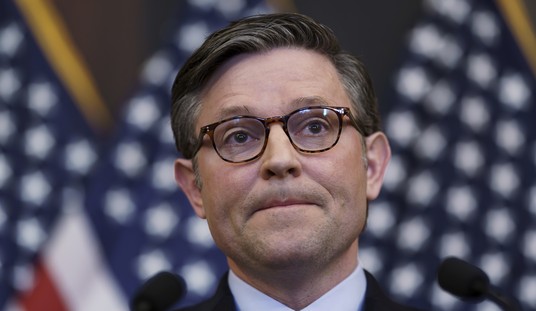
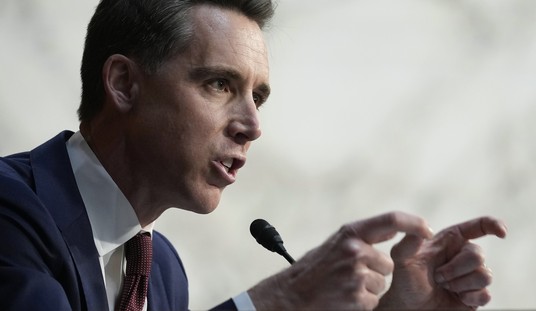




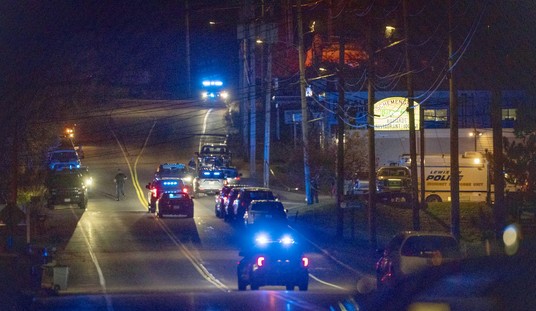
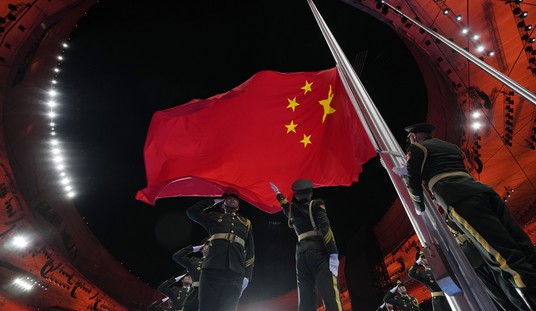


Join the conversation as a VIP Member